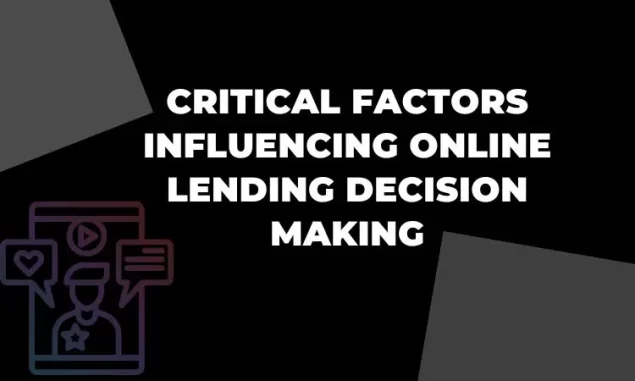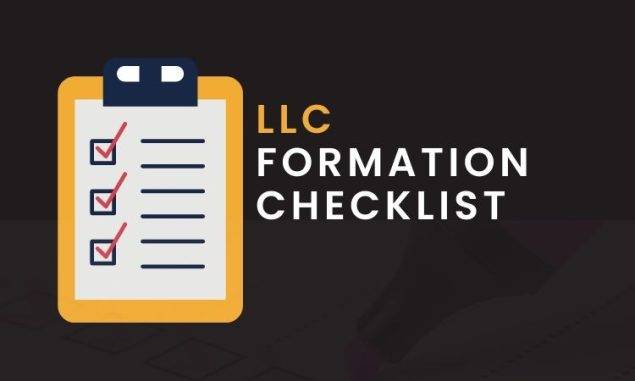Does life Insurance cover suicide? Read everything you need you know about your life insurance policy and suicide.
If you have ever struggled with suicidal thoughts or mental health issues, you may have wondered how your life insurance policy would affect your loved ones in case of such a tragic event.
Would they receive the financial protection you intended for them, or would they be left empty-handed?
The answer is not simple, as different life insurance policies have different terms and conditions regarding suicide.
In this article, we will explain how life insurance works with suicide, the factors affecting the coverage, and the options available for people who are considering suicide or have a history of mental health issues.
Let’s get started!
Suicide Clauses in Life Insurance Policies
Most life insurance policies have a suicide clause or provision, that limits or excludes the payment of the death benefit if the policyholder dies by suicide within a certain period after buying or changing the policy.
The purpose of this clause is to prevent people from buying life insurance to commit suicide shortly after, or to discourage people from increasing their coverage before taking their own lives.
What Triggers the Suicide Clause?
The suicide clause usually applies for the first one or two years of the policy, depending on the state laws and the insurance company.
This period is known as the exclusion period. If the policyholder dies by suicide during the exclusion period, the insurance company will not pay the full death benefit to the beneficiaries but may refund the premiums paid so far.
However, if the policyholder dies by suicide after the exclusion period, the insurance company will pay the full death benefit to the beneficiaries, as long as there are no other issues with the policy, such as fraud or misrepresentation.
The suicide clause can also be triggered by certain changes to the policy, such as increasing the coverage amount, converting a term policy into a permanent policy, or switching to a different insurer.
These changes can restart the exclusion period, which means that the suicide clause will apply for another one or two years from the date of the change.
Policy Types and Suicide Clauses
The suicide clause can vary depending on the type of life insurance policy, such as term, whole, or group.
Here are some examples of how different policies handle suicide:
- Term life insurance: This is the simplest and most affordable type of life insurance, which provides coverage for a specific time, usually between 10 and 30 years.
If the policyholder dies during the term, the beneficiaries receive the death benefit.
If the policyholder dies by suicide during the exclusion period, the beneficiaries may receive only the premiums paid so far.
Also, If the policyholder dies by suicide after the exclusion period, the beneficiaries receive the full death benefit.
- Whole life insurance: This is a type of permanent life insurance, which provides coverage for the entire lifetime of the policyholder, as long as the premiums are paid.
It also has a cash value component, which is a savings account that grows over time and can be accessed by the policyholder.
If the policyholder dies by suicide during the exclusion period, the beneficiaries may receive only the cash value of the policy.
However, If the policyholder dies by suicide after the exclusion period, the beneficiaries receive the full death benefit and the cash value.
- Group life insurance: This type of life insurance is offered by employers, associations, or other organizations to their members or employees, usually as part of a benefits package.
It typically provides a basic amount of coverage, which can be supplemented by additional coverage at the individual’s expense.
Unlike most individual life insurance policies, many group life policies do not have a suicide clause, meaning that they will pay the death benefit regardless of the cause of death.
However, some group life policies may have a suicide clause for the additional coverage or may have other limitations or exclusions.
Standard Exclusion Period for Suicide
As mentioned earlier, the standard exclusion period for suicide is usually one or two years, depending on the state laws and the insurance company.
This means that the policyholder must hold the policy for at least one or two years before suicide will be covered, or for one or two years after any changes to the policy that may restart the exclusion period.
Why Is There an Exclusion Period?
The exclusion period for suicide is designed to protect the insurance company from adverse selection resulting from the risk of insuring people who are more likely to die or make a claim than the average population.
With an imposing waiting period, the insurance company can reduce the chances of paying out a large death benefit to someone who bought or changed the policy intending to commit suicide shortly after.
The exclusion period for suicide also serves as a deterrent for people who are considering suicide, to think twice before taking their own lives if they know that their beneficiaries will not receive the full death benefit.
However, this may not be effective for people who are suffering from severe mental health issues, such as depression, anxiety, or bipolar disorder, as they may not be able to rationalize their decisions or foresee the consequences of their actions.
What Is the Typical Timeframe?
The typical timeframe for the exclusion period for suicide is one or two years, depending on the state laws and the insurance company.
However, some states may have different rules or regulations regarding the exclusion period for suicide.
Some states may have a shorter or longer exclusion period, or may not allow the exclusion period to be restarted by changes to the policy.
Therefore, you should check the laws of your state and the terms of your policy before buying or changing your life insurance.
Trending Insurance Issues
- 5 Essential Health Insurance Tips for Self-Employed Workers
- What To Expect From an Insurance Transcription Service
- 7 Rider Benefits to Add to Your Life Insurance Plan
- Reasons Why Doctors Need Own Occupation Disability Insurance
- Budget-Friendly Insurance Options: Protecting What Matters Most
- Artificial Intelligence and Insurance: How AI is transforming the insurance industry
- Climate Change and Insurance: Rising Risks and Evolving Coverage
- Cyber Insurance: Types, Benefits, Risks, & Choosing the Right Policy
- Pandemic Insurance: Protecting Your Business and Personal Assets in a Post-COVID World
- Sustainability and Insurance: promoting sustainability practices and mitigating environmental risks
- What are the Features of the Best Term Plan Insurance in India?
Exceptions to the Suicide Exclusion Period
While the suicide clause is a common feature of most life insurance policies, there are some exceptions that may allow the beneficiaries to receive the full death benefit even if the policyholder dies by suicide during the exclusion period.
These exceptions are based on certain conditions that may affect the policyholder’s coverage.
Here are some examples of exceptions to the suicide exclusion period:
1. Prior coverage exception:
This exception applies when the policyholder had a previous life insurance policy with the same or a different insurer, and replaced it with a new policy.
In this case, the new policy may waive the exclusion period for suicide, as long as the policyholder had continuous coverage and did not increase the coverage amount.
Let’s assume that the policyholder had a term policy for 10 years, and switched to a whole policy with the same insurer after 8 years, the new policy may cover suicide from the start, as the policyholder had been insured for more than the exclusion period.
2. Policy conversion exception:
This applies when the policyholder converts a term policy into a permanent policy with the same insurer, without increasing the coverage amount.
In this case, the new policy may waive the exclusion period for suicide, as the policyholder had continuous coverage and did not change the insurer.
For example, if the policyholder had a term policy for 20 years, and converted it into a whole policy with the same insurer after 15 years, the new policy may cover suicide from the start, as the policyholder had been insured for more than the exclusion period.
3. Contract specified exceptions:
These are specified in the policy contract, which may vary depending on the insurer and the policy type.
Some policies may have clauses that allow the beneficiaries to receive the full death benefit if the policyholder dies by suicide during the exclusion period, under certain conditions.
This means that some policies may cover suicide if the policyholder was under the care of a licensed mental health professional, or if the policyholder had a terminal illness that was diagnosed after buying the policy.
4. Exclusion expiration exception:
This applies when the policyholder dies by suicide after the exclusion period has expired, but before the policy is renewed or extended.
In this case, the policy may still cover suicide, even if the policyholder did not pay the premium for the renewal or extension.
Let’s assume that the policyholder had a term policy for 10 years, and died by suicide on the 11th year, the policy may still pay the death benefit, even if the policyholder did not pay the premium for the 11th year.
Insurance Company Investigations into Suicide
When a policyholder dies and the beneficiaries file a claim, the insurance company will request a death certificate that certifies the date, time, place, and cause of death.
The death certificate will show if the death was natural, accidental, or intentional, and if it was self-inflicted or not.
If the death certificate shows that the death was a suicide, the insurance company will investigate the claim further, to determine if the suicide clause applies or not.
What Evidence Do Insurance Companies Require?
The insurance company may require additional documentation or evidence to verify the cause and circumstances of the death, including
- An autopsy report, of the body that reveals the cause and manner of death, and any injuries or diseases that may have contributed to it.
- A medical examiner report that summarizes the findings and conclusions of the autopsy, and may also include toxicology tests, witness statements, and other relevant information.
- An emergency medical services (EMS) report, of the actions and observations of the paramedics or first responders who attended the scene of the death, and may also include vital signs, medications, procedures, and outcomes.
- The policyholder’s medical records, that show the policyholder’s medical history, diagnoses, treatments, prescriptions, and other health-related information.
The insurance company may also contact the policyholder’s family, friends, co-workers, or other acquaintances, to gather more information about the policyholder’s mental state, behavior, lifestyle, and motives.
They may also check the policyholder’s social media accounts, emails, texts, phone calls, or other digital records, to look for any signs of suicidal ideation, planning, or intent.
Then use all the available information and evidence to determine if the policyholder’s death was indeed a suicide and if the suicide clause applies or not.
Who Determines the Cause of Death?
The cause of death is usually determined by the medical examiner or coroner, who investigates and certifies the deaths that are not natural, such as homicides, suicides, accidents, or unknown causes.
They will perform an autopsy, to reveal the cause and manner of death and any injuries or diseases that may have contributed to it.
Also, they will issue a death certificate that certifies the date, time, place, and cause of death. The death certificate will indicate if the death was natural, accidental, or intentional and if it was self-inflicted or not.
The insurance company will use the death certificate and the autopsy report to verify the cause of death and to process the claim.
However, the insurance company may also conduct its own investigation, as mentioned earlier, to confirm or dispute the findings of the medical examiner or coroner.
They may also request a second opinion from another medical examiner or coroner, or hire an independent expert to review the case.
Reasons a Life Insurance Claim May Be Denied for Suicide
If the policyholder dies by suicide, the insurance company may deny the claim for the death benefit, depending on the circumstances and the terms of the policy.
Read some common reasons why a life insurance claim may be denied for suicide below
Suicide Occurs During Exclusion Period
The most obvious reason why a life insurance claim may be denied for suicide is if the policyholder dies by suicide during the exclusion period.
In this case, the suicide clause will apply, and the insurance company will not pay the full death benefit to the beneficiaries, but may refund the premiums paid so far.
However, as we discussed earlier, there may be some exceptions to the suicide exclusion period, depending on the type of policy, the state laws, and the policy contract.
Undisclosed Medical History
Another reason why a life insurance claim may be denied for suicide is if the policyholder had a history of mental health issues, such as depression, anxiety, or bipolar disorder, and did not disclose it to the insurance company when applying for the policy.
In this case, the insurance company may accuse the policyholder of fraud or misrepresentation and may void the policy or reduce the death benefit.
The insurance company may discover the undisclosed medical history by reviewing the policyholder’s medical records, or by interviewing the policyholder’s family, friends, or doctors.
They may also use the policyholder’s social media accounts, emails, texts, or other digital records, to look for any evidence of mental health issues.
Then, argue that the policyholder’s mental health issues were a material fact that affected the risk and the premium of the policy and that the policyholder intentionally or negligently concealed or misrepresented this fact, to obtain the policy or a lower premium.
Also, argue that the policyholder’s mental health issues were a proximate cause of the suicide and that the policyholder knew or should have known that the suicide would not be covered by the policy.
However, the policyholder’s beneficiaries may challenge the insurance company’s decision and may claim that the policyholder’s mental health issues were not a material fact
Or that the policyholder was not aware or did not understand the questions or the terms of the policy, or that the policyholder’s mental health issues were not related or relevant to the suicide.
The outcome of this may depend on the evidence, the arguments, and the laws of the state where the policy was issued.
Evidence of Deliberate Intent
Another reason why a life insurance claim may be denied for suicide is if the insurance company finds evidence of deliberate intent, which means that the policyholder planned or prepared for the suicide, or had a clear and rational motive to end their life.
In this case, the insurance company may argue that the policyholder bought or changed the policy to commit suicide shortly after, or that the policyholder increased their coverage before taking their own lives.
They may find evidence of deliberate intent by reviewing the policyholder’s digital records that may indicate suicidal planning or intent.
Then use the evidence of deliberate intent to prove that the policyholder violated the terms and conditions of the policy, or that the policyholder committed fraud or misrepresentation, and may deny the claim for the death benefit.
However, the policyholder’s beneficiaries may dispute the insurance company’s decision and may claim that the evidence of deliberate intent was not conclusive, reliable, or relevant, or that the policyholder’s actions, behavior
Or motives were influenced by external factors, such as stress, trauma, or coercion, or by internal factors, such as mental illness, medication, or substance abuse.
The policyholder’s beneficiaries may also claim that the insurance company acted in bad faith and that the evidence of deliberate intent was not a valid reason to deny the claim.
Then seek legal advice from an insurance claims attorney, who can help them file a complaint, negotiate a settlement, or pursue a lawsuit against the insurance company.
Contract Terms Excluding Self-Harm
Another reason why a life insurance claim may be denied for suicide is if the policy contract has specific terms or clauses that exclude or limit the coverage for self-harm, regardless of the cause or the timing of the death.
Here, the insurance company may argue that the policyholder agreed to the terms and conditions of the policy and that the policyholder’s death by suicide was not covered by the policy.
The policy contract may have different terms or clauses for different types of policies, such as term, whole, or group.
Military and Veteran Life Insurance Policies
If you are a member or a veteran of the U.S. military, you may have access to special life insurance policies that provide coverage for the unique risks and challenges that you face.
These policies may have different rules and regulations regarding suicide, compared to civilian life insurance policies.
See some examples of military and veteran life insurance policies, and how they handle suicide:
Coverage for Active Duty Under SGLI
If you are an active duty member of the U.S. military, you are automatically enrolled in the Servicemembers’ Group Life Insurance (SGLI) program, which provides up to $400,000 of life insurance coverage at a low cost.
You can also choose to reduce or decline the coverage, or to add coverage for your spouse and children under the Family SGLI program.
The good news is that SGLI does not have a suicide clause, meaning that it will pay the full death benefit to your beneficiaries, regardless of the cause or timing of your death.
This is because SGLI is a government-sponsored program that provides financial protection for the families of service members who face high-risk situations and challenges.
However, there are some limitations and exclusions that may apply to SGLI, such as:
- You must be in good standing with the military, and not be dishonorably discharged, deserting, or absent without leave.
- You must be on active duty, within 120 days of separation or release from active duty, or within 120 days of assignment to the Individual Ready Reserve or the Inactive National Guard.
- You must not be convicted of a capital crime, such as murder or treason, or be sentenced to death by a court-martial or a civil court.
- You must not die as a result of your own misconduct, such as drug abuse, alcohol abuse, or criminal activity.
If you meet these requirements, you can rest assured that SGLI will cover your death by suicide, and provide financial support for your loved ones.
Coverage for Veterans Under VGLI
If you are a veteran who had SGLI coverage while you were on active duty, you may be eligible to convert your SGLI coverage into Veterans’ Group Life Insurance (VGLI) coverage, which is a renewable term life insurance program that is administered by the Department of Veterans Affairs (VA).
You can apply for VGLI within one year and 120 days of your separation or release from active duty, and you can keep your VGLI coverage for as long as you pay the premiums.
The VGLI also does not have a suicide clause, meaning that it will pay the full death benefit to your beneficiaries, regardless of the cause or timing of your death.
This is because VGLI is a continuation of your SGLI coverage, and it is also a government-sponsored program that provides financial protection for the families of veterans who may face difficulties or challenges after leaving the military.
However, there are some limitations and exclusions that may apply to VGLI, such as:
- You must be under the age of 60 when you apply for VGLI, and you must not be totally disabled or terminally ill at the time of application.
- You must pay the premiums on time, and you must not let your coverage lapse or expire.
- You must not be convicted of a capital crime, such as murder or treason, or be sentenced to death by a court-martial or a civil court.
- You must not die as a result of your own misconduct, such as drug abuse, alcohol abuse, or criminal activity.
If you meet these requirements, VGLI will cover your death by suicide, and provide financial support for your loved ones.
Private Insurance Alternatives
If you are a member or a veteran of the U.S. military, you may also have the option to buy a private life insurance policy from a commercial insurer, either as a supplement or an alternative to your SGLI or VGLI coverage.
A private life insurance policy may offer some advantages, such as:
- More flexibility as you can choose the type, amount, and duration of your coverage, and the features and riders that suit your needs and preferences.
- More options as you can shop around and compare different insurers, policies, and prices, and find the best deal for your situation and budget.
- More stability and security, as you can keep your coverage regardless of your military status, and you do not have to worry about changes or interruptions in your government-sponsored coverage.
However, a private life insurance policy may also have some disadvantages, such as:
- Higher cost and risk, since you may have to pay higher premiums, fees, or charges, and you may have to undergo medical exams, tests, or screenings, which may affect your eligibility or rates.
- Lower coverage and benefits, because you may have to settle for a lower amount or a shorter term of coverage, and you may have to deal with exclusions, limitations, or restrictions, such as the suicide clause.
- Less protection and support, as you may have to deal with more complex terms and conditions, and you may have less recourse or assistance in case of a dispute or a claim.
Therefore, before you buy a private life insurance policy, you should weigh the pros and cons, compare it with your SGLI or VGLI coverage, and decide which option is best for you and your family.
What Legal Recourse Options Exist for Beneficiaries?
If you are a beneficiary of a life insurance policy, and your claim for the death benefit is denied by the insurance company, you may feel frustrated, angry, or helpless.
However, you do not have to accept the insurance company’s decision, and you may have some legal recourse options to challenge it and seek justice.
Here are some legal recourse options that may exist for beneficiaries:
File a Complaint with Your State Department of Insurance
One of the first steps you can take is to file a complaint with your state Department of Insurance, which regulates and oversees the insurance industry in your state.
The state Department of Insurance can help you when they
- Review your complaint and the insurance company’s response, and determine if the insurance company violated any laws or regulations, or acted in bad faith or unfairly.
- Mediate or arbitrate the dispute between you and the insurance company, and try to reach a resolution or a settlement that is satisfactory for both parties.
- Take disciplinary or legal action against the insurance company, if it is found to be guilty of any wrongdoing or misconduct, and impose fines, penalties, or sanctions.
To file a complaint with your state department of insurance, you will need to provide some information and documentation, such as:
- Your name, address, phone number, and email address.
- The name, address, phone number, and policy number of the insurance company and the policyholder.
- The date, time, place, and cause of the policyholder’s death, the death certificate, and the autopsy report.
- The amount and the status of your claim, and the reason for the denial or the delay.
- The copies of the policy contract, the claim form, the denial letter, and any other relevant correspondence or evidence.
Claim Bad Faith Against Your Insurer
Another step you can take is to claim bad faith against your insurer, which is a legal term that means that the insurance company breached its duty of good faith and fair dealing, and acted dishonestly, unreasonably, or maliciously, in handling your claim.
If you can prove that the insurance company acted in bad faith, you may be entitled to receive not only the death benefit but also additional damages, such as:
- Compensatory damages are for your actual losses or expenses, such as medical bills, funeral costs, or lost income.
- Consequential damages, for your future losses or expenses, such as loss of inheritance, loss of companionship, or loss of support.
- Punitive damages, that punish the insurance company for its wrongful or outrageous conduct, and deter it from repeating it in the future.
To claim bad faith against your insurer, you will need to provide some evidence and arguments:
- The policy contract shows the terms and conditions of the coverage and the obligations and responsibilities of the insurance company.
- The claim form, showing the details and the amount of your claim, and the proof and the documentation of the policyholder’s death.
- The denial letter, showing the reason and the basis for the denial or the delay of your claim, the appeal process, and the deadline.
- The correspondence or the records, showing the communication and the interaction between you and the insurance company, and the attempts and the efforts to resolve the dispute.
- The witnesses or the experts, who can testify or provide opinions on the cause and the circumstances of the policyholder’s death, and the validity and the value of your claim.
To claim bad faith against your insurer, you will need to hire an insurance claims attorney, who can help you by:
- Review your case and the evidence, and evaluate the strength and the merit of your claim.
- Negotiate or communicate with the insurance company, and try to reach a resolution or a settlement that is favorable for you.
- File or defend a lawsuit against the insurance company, and represent you in court or trial, if the dispute cannot be settled out of court.
Consult an Insurance Claims Attorney
The final step you can take is to hire an insurance claims attorney, to:
- Advise you on your rights and options, and explain the laws and regulations that apply to your case.
- Analyze your policy contract, your claim form, your denial letter, and any other relevant documents or evidence, and identify any errors, inconsistencies, or loopholes that may benefit you.
- Prepare and file a demand letter, which is a formal letter that states your claim and your request for the death benefit, and provides the reasons and the evidence to support it.
- Negotiate or communicate with the insurance company, and try to reach a resolution or a settlement that is favorable for you, or prepare for a mediation or an arbitration, if applicable.
- File or defend a lawsuit against the insurance company, and represent you in court or trial, if the dispute cannot be settled out of court, or appeal the court’s decision, if necessary.
Most Common Reasons for Buying Life Insurance
Life insurance is a contract between you and an insurance company that covers various expenses and obligations that may arise after your death.
Some of the most common reasons why people buy life insurance are
- Family protection: If you have a spouse, children, or other dependents who rely on your income or your support, life insurance can help them maintain their standard of living, pay for their living expenses, education, health care, or other needs, and cope with the loss of your income or your presence.
- Mortgage protection: If you have a mortgage or a loan on your home or property, life insurance can help your family pay off the debt, and avoid losing their home or their equity, in case of your death.
- Income replacement: If you have a significant income or a valuable skill or profession, life insurance can help your family replace your income, and continue to enjoy the lifestyle and the opportunities that you provided for them, in case of your death.
- Caregiving responsibilities: If you have a parent, a sibling, a relative, or a friend who needs your care or assistance, life insurance can help them cover the cost of their care, or hire a professional caregiver, in case of your death.
- Inheritance tax planning: If you have a large estate or substantial wealth, life insurance can help your heirs pay for the inheritance taxes, fees, or charges that may be imposed on your assets or your property, after your death.
- Funeral expenses: If you want to spare your family from the burden of paying for your funeral, burial, or cremation, life insurance can help them cover the cost of your final arrangements, and honor your wishes, after your death.
Keynotes
- Life insurance can cover suicide, depending on the terms and conditions of the policy, the type and the amount of the coverage, the timing and the cause of the death, and the state laws and regulations.
- Most life insurance policies have a suicide clause or provision, which limits or excludes the payment of the death benefit if the policyholder dies by suicide within a certain period after buying or changing the policy, usually one or two years.
- There may be some exceptions to the suicide clause, depending on the type of policy, the state laws, and the policy contract, which may allow the beneficiaries to receive the full death benefit even if the policyholder dies by suicide during the exclusion period.
- The insurance company may investigate the claim for the death benefit and may require additional documentation or evidence to verify the cause and the circumstances of the death and to determine if the suicide clause applies or not.
- The insurance company may deny the claim for the death benefit if the policyholder dies by suicide during the exclusion period if the policyholder has an undisclosed medical history, if the policyholder has evidence of deliberate intent, or if the policy contract had terms or clauses that excluded or limited the coverage for self-harm.
- The beneficiaries may have some legal recourse options to challenge the insurance company’s decision, and to seek justice, such as filing a complaint with the state Department of Insurance, claiming bad faith against the insurer, or hiring an insurance claims attorney.
- If you are a member or a veteran of the U.S. military, you may have access to special life insurance policies that are designed to provide coverage for the unique risks and challenges that you face, such as SGLI or VGLI, which do not have a suicide clause, or private insurance alternatives, which may have different advantages and disadvantages.
- Life insurance can provide financial protection and peace of mind for you and your loved ones, as it can help cover various expenses and obligations that may arise after your death, such as family protection, mortgage protection, income replacement, caregiving responsibilities, inheritance tax planning, or funeral expenses.
Get Expert Guidance on Life Insurance for Suicide Protection
If you are interested in buying or changing your life insurance policy, and you want to know more about how it works with suicide, you should get expert guidance from a licensed insurance agent or a financial planner, who can help you:
- Assess your needs and your objectives, and determine how much and what type of life insurance you need, and how it fits into your overall financial plan.
- Explain the terms and conditions of the policy, and the features and benefits of the coverage, and answer any questions or doubts you may have.
- Compare different insurers, policies, and prices, and find the best deal for your situation and your budget.
- Apply for the policy, and help you with the paperwork, the medical exams, the tests, or the screenings, if required.
- Review your policy periodically, and update or adjust it, if your circumstances or your goals change.
Trending Insurance Issues
- 5 Essential Health Insurance Tips for Self-Employed Workers
- What To Expect From an Insurance Transcription Service
- 7 Rider Benefits to Add to Your Life Insurance Plan
- Reasons Why Doctors Need Own Occupation Disability Insurance
- Budget-Friendly Insurance Options: Protecting What Matters Most
- Artificial Intelligence and Insurance: How AI is transforming the insurance industry
- Climate Change and Insurance: Rising Risks and Evolving Coverage
- Cyber Insurance: Types, Benefits, Risks, & Choosing the Right Policy
- Pandemic Insurance: Protecting Your Business and Personal Assets in a Post-COVID World
- Sustainability and Insurance: promoting sustainability practices and mitigating environmental risks
- What are the Features of the Best Term Plan Insurance in India?
Conclusion
Life insurance is a sensitive topic, especially when it comes to suicide.
Many factors may affect the coverage or the claim, and there are many rules and regulations that may vary depending on the policy, the insurer, and the state.
Therefore, you should be cautious when buying or changing your life insurance policy, and you should seek professional help or advice if you need it.
We hope that this article has provided you with some useful and relevant information on how life insurance works to suicide, and what options are available for you and your family.
If you have any questions or comments, please feel free to leave them below, and we will try to answer them as soon as possible.
Thank you for reading!









